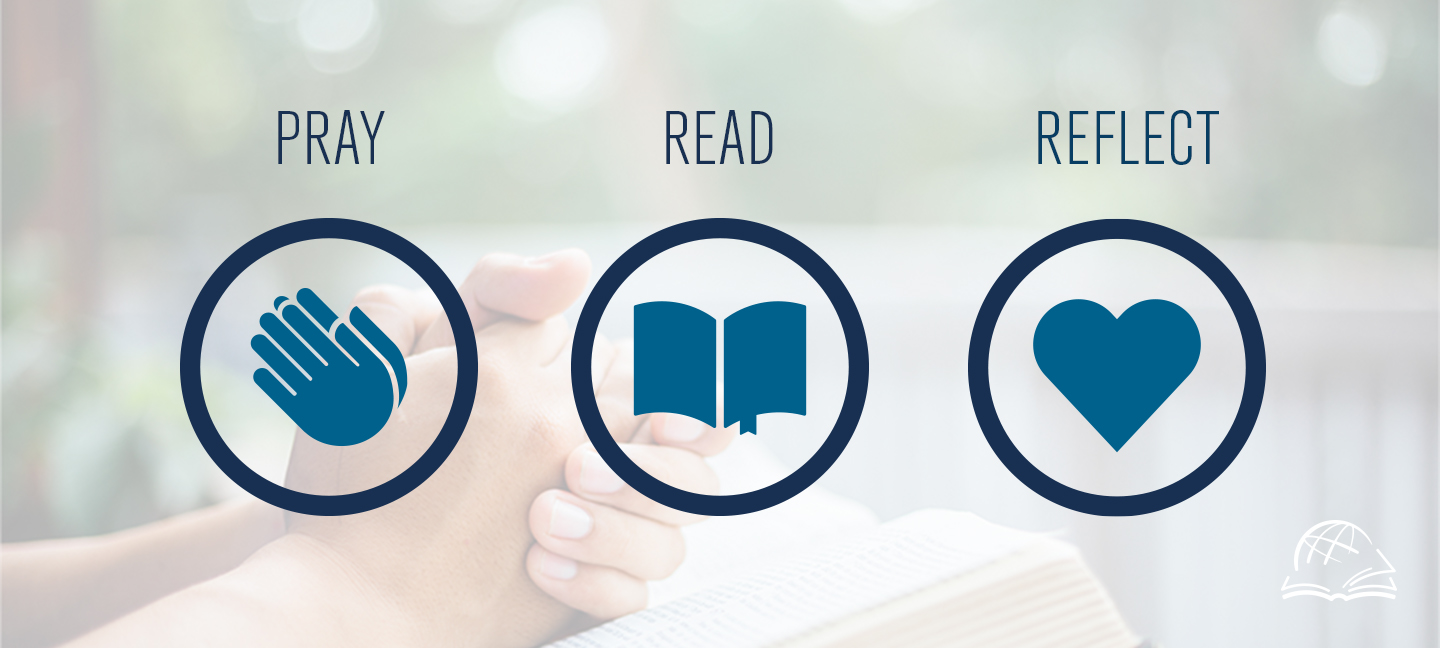Thru the Bible—RevelationНамуна


As you journey through the book of Revelation, we encourage you to invite the Lord into your studies through prayer, reading of the word, and reflection.
- Pray: Before you start each devotion, ask the Lord to use it to grow you up in grace and in the knowledge of our Lord and Savior Jesus Christ.
- Read: Invite God to open your eyes and deepen your understanding of His Word through each daily passage.
- Reflect: Ask the Spirit to help you take to heart what He wants to show yo
God’s Grand Finale: Introduction to Revelation


We look around at a dark world today and we wonder how it’s all going to end. All we need to do is turn to the last book of the Bible, the Revelation. What we read there tells us it’s going to work out all right for the child of God.
It doesn’t look that way. Everyone sees a great crisis coming. People talk about it all the time. As a result of this foreboding, there has been a growing interest in the Book of Revelation.
Revelation is the 66th book of the Bible—the last one. This means we need to know 65 other books before we get to this place.
Revelation is primarily prophetic. It begins with the revelation of the glorified Christ. Then the whole story of the church is given. Then, at the end of chapter 3, the church goes to heaven and we see it, not as the church anymore, but as the bride which will come to the earth with Christ when He comes to establish His Kingdom—that thousand-year reign, John will tell us more about. It will be a time of testing, for at the end of that period Satan will be released for a brief season. Then the final rebellion is put down and eternity begins. This is the viewpoint of Revelation we will now explore. History testifies that we have been looking for Christ to come again ever since He left.
Revelation is not a difficult book. Some try to make it symbolic and hard to understand. Actually, Revelation organizes itself in a series of sevens, each in orderly division. It is led by Jesus Christ Himself in glory, in charge of everything that takes place.
Revelation begins when Jesus Christ leaves the earth.
In chapter 1, we see Him glorified.
In chapters 2–3 we see the church.
In chapters 4–5 we see the church in heaven.
Then on earth, the Great Tribulation takes place, chapters 6–18.
In chapter 19 we see Jesus Christ return to the earth and establish His Kingdom. Chapter 20 talks about the thousand-year reign of Christ.
Then the Great White Throne is set up when the lost are judged, and in chapters 21–22 eternity begins. That is Revelation.
The Christ of the Revelation
According to the instructions Jesus gives to him, John divides Revelation according to the past, the present, and the future. “Write the things which you have seen, and the things which are, and the things which will take place after this” (1:19).
Write what you saw, John. Past tense—refers to John’s vision of the glorified Christin heaven (chapter 1).
Write the things which are. Present tense—refers to Christ’s present ministry (chapters 2-3). The living Christ is very busy today as Head of the church.
Write the things that you are about to see after these things. After the church leaves the earth, the Lord wants us to know what will happen both in heaven and on earth (chapters 4-21).
In the first division of Revelation, we will see the person of Christ in His position and glory as the Great High Priest who is in charge of His church. In the Gospels, Jesus subjected Himself to His enemies on earth and died on a cross. But we discover a completely different Jesus Christ in Revelation. Here He is in absolute control. Although He is still the Lamb of God, His wrath is revealed in judgment, and it terrifies the earth.
Genesis opens the Bible not only with a global view but also with a universal view— ”in the beginning, God created the heaven and the earth” (Genesis1:1). Now in Revelation we see what God is going to do with His universe. No other book is quite like this one.
Jesus tells the church, “And behold, I am coming quickly, and My reward is with Me, to give to everyone according to his work. I am the Alpha and the Omega, the Beginning and the End, the First and the Last” (22:12-13).
“Even so, come, Lord Jesus” (22:20).
Next: Is it “Revelations” or “Revelation”? Find out this and other interesting insights.

1. Why is it important for us to recognize that Jesus is the ultimate subject of the book of Revelation?
2. What is the significance of Jesus being someone who lived, was dead, and is now alive forevermore?
3. The Jesus of Revelation is the same as the Jesus of the Gospels, but what is different?
Additional Resources
Listen to Dr. J. Vernon McGee's complete teaching on Revelation 1:17-20, Revelation 1:10-17, Revelation 1:4-9, Revelation 1:1-4, Revelation 1:1, Revelation Intro (cont.) and Revelation Intro.
Scripture
About this Plan

Revelation is God’s grand finale—His final Word to mankind—but it’s really just the beginning. If you’ve thought Revelation is complicated with all its symbolism, let veteran Bible teacher Dr. J. Vernon McGee walk you through this organized, prophetic book in 28 lessons. You’ll see God’s magnificent master plan unfold and everything point to Jesus Christ as the author of creation and fulfiller of all His promises.
More
Нақшаҳои марбут ба мавзӯъ

Walking in the Spirit

God Is Powerful

Being Like Him - a 40 Day Lenten Devotional

Failure Is Not Final

Pain to PURPOSE!

Release the Offense

The Novelty Detox for Lent: Letting Go of Novelty and Being Present in the Everyday

ZOE DEVO

Every Home a Foundation: A Theology of Home
